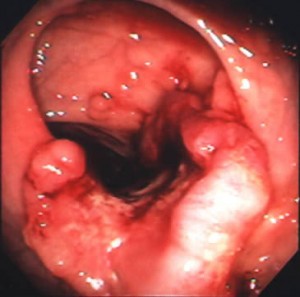Latest studies from the Albert Einstein College of Medicine in Yeshiva University have revealed that obesity and excess blood sugar can have a direct effect on increasing the risk of colorectal cancer. In order to get to these facts, more than 5000 women who had crossed menopausal stage were considered. Cancer of the colon and the rectum is among the top three most common cancers in the United States. It ranks third in causing death. Both men and women are equally prone to the cancer. In 2007, nearly 142,672 people in United States fell prey to deaths due to colorectal cancer. Among these, men accounted to 53,219 and women accounted to 69,917. This is the input provided by US Center for Disease Control and Prevention.
For the current study, only post menopausal women were considered. The study spanned over twelve years. Insulin levels and fasting blood sugar levels were measured in these women. It was found that after 12 years, the number of women who were diagnosed with colorectal cancer were 81. When the baseline blood sugar levels of these women obtained 12 years earlier were noted, it was found that the value was higher.

Baseline values were divided into three levels and the lowest level consisted of the ones with the lowest values. It was found that women who were in the top one-third highest level of blood sugar faced double the risk of cancer when compared to those in the lower blood sugar level groups. However, the level of insulin in the body did not impact risk of cancer in any way.
Colorectal cancer is higher in people who are obese and who have a high level of glucose in the body. However, it was always believed that insulin level in the body was a major indicator of risk of colorectal cancer. The current study disproves this theory and ascertains that insulin has nothing to do with causing colorectal cancer. Obesity on the other hand, can have a role to play in causing cancer because of the high blood glucose level.
Geoffrey Kabat, lead researcher of the study and a senior epidemiologist in Albert Einstein College of Medicine, said that researchers will now focus on finding the mechanism by which high blood sugar level in the body causes colorectal cancer. It has been hypothesized that high blood sugar levels leads of the development of intestinal polyps that is a predecessor to cancer.